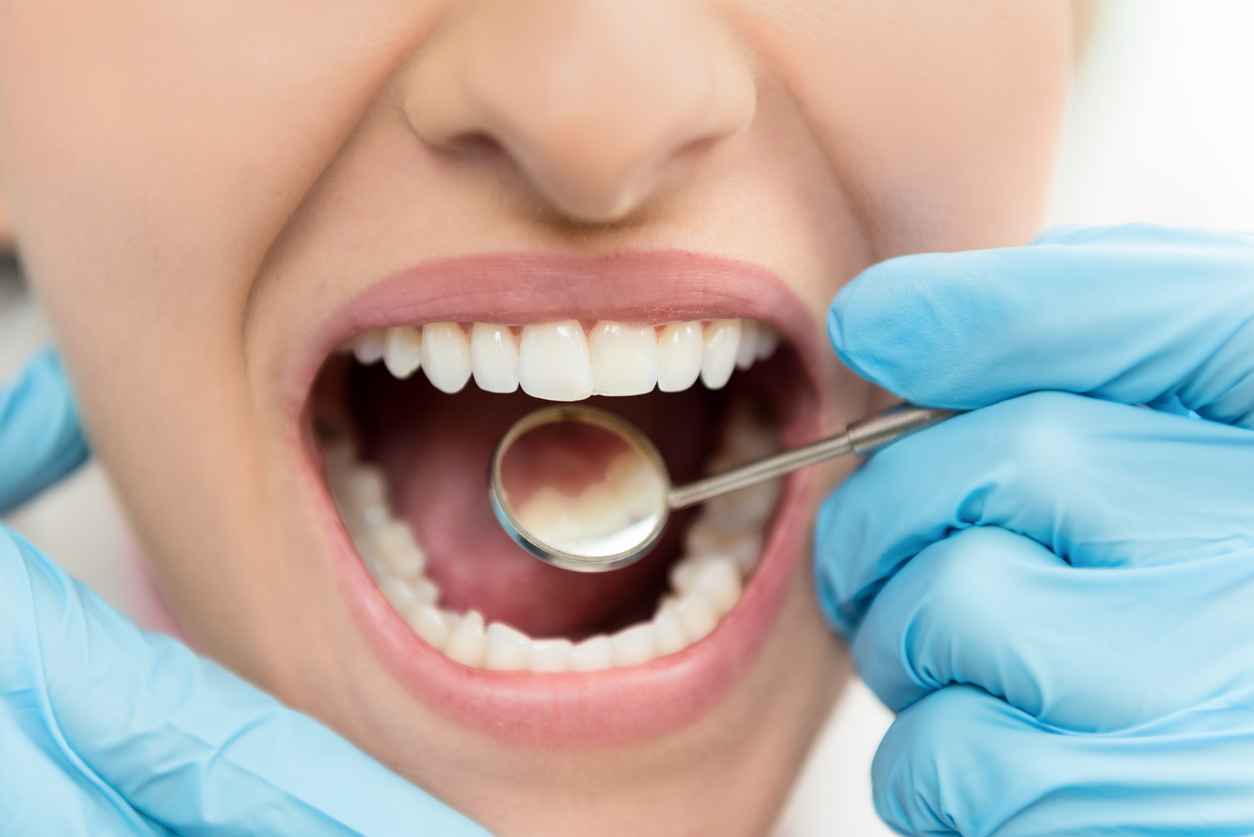
Periodontal Disease and Gum Disease Symptoms, Causes, and Treatment
June 10, 2024
At Scarsdale Dental Center, we’re dedicated to helping our patients achieve and maintain optimal oral health. Periodontal disease, commonly known as gum disease, is a significant concern that affects many individuals.
Below, the Scarsdale Dental Center team explores the causes, symptoms, and treatment options for periodontal disease to help you better understand and manage this condition.
What Is Periodontal Disease and How It Affects Gum Tissue?
Periodontal disease is an infection of the tissues that hold teeth in place. It is typically caused by poor oral hygiene, which allows plaque—a sticky film of bacteria—to build up on the teeth and harden. In its advanced stages, periodontal disease can lead to sores, bleeding gums, painful chewing problems, and even tooth loss.
Common Causes of Gum Disease and Periodontitis
The primary cause of periodontal disease is plaque buildup. However, several other factors can contribute to the development and progression of this condition:
- Poor Oral Hygiene: Inadequate brushing and flossing habits allow plaque to accumulate on the teeth.
- Smoking and Tobacco Use: These can impair the gum tissue’s ability to repair itself.
- Genetics: Some individuals may be more predisposed to gum disease due to their genetic makeup.
- Hormonal Changes: Changes in hormones, such as during pregnancy, puberty, and menopause, can make gums more sensitive and susceptible to disease.
- Chronic Illnesses: Conditions like diabetes can affect the gums’ health and exacerbate periodontal disease.
- Medications: Certain medications can reduce saliva flow, which protects the gums and teeth.
Recognizing Symptoms of Gum Disease Early
Recognizing the symptoms of periodontal disease early can lead to more effective treatment. Common symptoms include:
- Red, swollen, or tender gums
- Bleeding while brushing or flossing
- Persistent bad breath or a bad taste in the mouth
- Receding gums
- Loose or shifting teeth
- Formation of deep pockets between teeth and gums
Dental Treatment Options for Periodontitis and Gum Disease
Treatment for periodontal disease depends on the stage and severity of the condition. At Scarsdale Dental Center, we offer a range of treatments tailored to meet the needs of each patient:
- Professional Cleaning: For gingivitis, a professional dental cleaning can remove plaque and tartar buildup.
- Scaling and Root Planing: A deep-cleaning, non-surgical procedure that involves scraping away plaque and tartar from above and below the gum line and smoothing rough spots on the tooth root.
- Medications: Antibiotics or other medications may be prescribed to control infection and pain.
- Surgical Treatments: In severe cases, procedures like flap surgery, soft tissue grafts, or bone grafts may be necessary to restore supportive tissues.
Periodontal disease is a serious condition that can significantly affect oral and overall health. Understanding the causes, recognizing the symptoms, and seeking prompt treatment can help manage and even prevent the progression of this disease.
Looking for a dentist in Scarsdale, NY? Turn to the experts at Scarsdale Dental Center!
At Scarsdale Dental Center in Scarsdale, NY, our experienced dental team is here to provide you with the care and support you need to maintain a healthy smile.
If you suspect you may have periodontal disease or want to learn more about how to protect your gums, contact us today to schedule an appointment. Your journey to optimal oral health starts at Scarsdale Dental Center!
FAQ About Periodontal Disease
Can periodontal disease be cured?
Periodontal disease can’t always be fully cured, but it can be effectively managed. Early stages like gingivitis may be reversed with proper oral hygiene and regular dental care. More advanced forms often require professional treatment to control the condition and prevent further damage.
Can you live a long life with periodontitis?
Yes, many people live long, healthy lives with periodontitis. With consistent brushing and flossing, professional dental care, and management of conditions like diabetes, the disease can be controlled and tooth loss prevented.
What is the major cause of periodontal disease?
The main cause is plaque buildup from poor oral hygiene. If not removed, plaque hardens into tartar and causes inflammation of the gum tissue. Smoking, genetics, and chronic illnesses are also key risk factors for developing gum disease.
How to heal gum pockets?
Gum pockets can be reduced with treatments like scaling and root planing, which remove plaque and bacteria below the gum line. Improved oral hygiene and regular dental visits also help promote healing and prevent deeper pocket formation.
Will I eventually lose my teeth with periodontal disease?
Tooth loss can occur if periodontal disease progresses untreated. However, with early diagnosis, professional treatment, and good oral hygiene, you can preserve your teeth and prevent significant bone or tissue damage.
Can 5mm gum pockets be reversed?
A 5mm pocket indicates moderate gum disease and may not fully reverse, but it can improve with deep cleaning, consistent flossing, and proper brushing. With timely care, pocket depth can be reduced and the disease stabilized.
Recent News

Crowns vs. Fillings: Which Is Right for You?
November 20, 2025

The Connection Between Oral Health and Overall Well-Being
August 29, 2025

Top 5 Common Dental Emergencies and How to Handle Them
May 30, 2025

TMJ Disorder Explained: Causes, Symptoms, and Treatment Options
February 28, 2025

Protecting Your Smile During the Holidays: Tips From Our Dental Experts
November 27, 2024

An Interview with Scarsdale Dental Center’s Dr. Teresa Jacob
August 30, 2024

